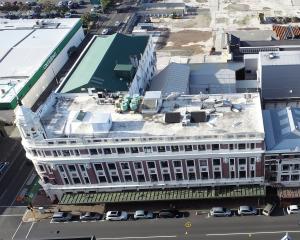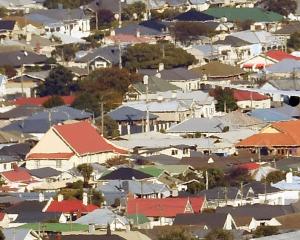A support group for Otago people with Tourette's syndrome and their families is being established in Dunedin.
It will be the first outside Christchurch, where the Tourette's Association of New Zealand was founded by Robyn Twemlow last September after her 10-year-old daughter was diagnosed.
Mrs Twemlow said there were no Tourette's groups in New Zealand at the time, and she has since been contacted by Otago residents seeking help to deal with their Tourette's or their children's.
She said there were ''bound to be'' more children with Tourette's in Otago and many others dealing with its effects, including teachers, who would benefit from peer support.
''Every single person who's contacted me said they know no-one else with Tourette's in New Zealand. It's very isolating and people don't talk about it.''
Mrs Twemlow knew of an 11-year-old girl and a young man with Tourette's in Dunedin, as well as two young boys with the disorder in the Maniototo and Twizel.
She aimed to appoint a care support person in Dunedin to co-ordinate informal get-togethers where children could meet others with Tourette's and parents could talk to each other.
About one in every 1000 children under the age of 15 was diagnosed with Tourette's, and based on census data Mrs Twemlow estimated there were about 800 in New Zealand.
It was a conservative estimate, given many were not formally diagnosed, she said.
Mrs Twemlow said children with Tourette's were commonly bullied at school, lacked confidence, were depressed, and wrongly labelled as naughty or academically slow by teachers who were unfamiliar with the disorder.
She said Tourette's often started with small repetitive facial movements such as blinking and twitching, then developed into stronger physical tics in combination with vocal tics such as coughing, grunting, stuttering and word repetition.
In extreme cases, usually in adulthood, tics included swearing, she said.
''Most people think it's all about swearing, but that's the smallest part of it. Only about 10% of people with Tourette's swear.''
Of the 70 New Zealanders with Tourette's in the association's database, and others Mrs Twemlow had talked to, only one had a swearing tic.
Mrs Twemlow hoped to nationally distribute written guidelines for parents and teachers about Tourette's, and encouraged people to contact her by email on: robyn@tourettes.org.nz
Tourette's syndrome
• An estimated 800 New Zealand children have Tourette's.
• There is no formal record of New Zealanders with Tourette's.
• About one in every 1000 children under 15 are diagnosed.
• It is a childhood neurological disorder and cannot start in adulthood.
• Only 10% of people with Tourette's have a swearing tic.
• Tourette's usually starts with minor facial tics such as blinking and twitching.
• Diagnosis comes when physical tics are coupled with vocal tics such as coughing, grunting and word repetition for at least a year.
• At least three people on Otago have Tourette's; likely to be more.
• About a third of initial Tourette's tics will become so minute they will not be noticed, a third will stay the same, about a third will worsen.
• Tourette's is genetic and more common among boys.
• About 90% of people with Tourette's have another disorder on the autism spectrum, usually attention-deficit hyperactivity disorder (ADHD) and obsessive compulsive disorder (OCD).
• There is no known cause or cure.
Advertisement













